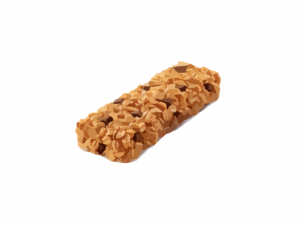4 Ways Alcohol Will Negatively Affect Your Hormonal System

And that’s a fact. Take it from one who knows. I’m someone who’s spent longer in jail than in a drug and alcohol rehab, though I’ve done been to both, and, thankfully, in that order.
My name is Andy, and if there’s one way in which drug and alcohol addiction has provided a positive in my life, it’s this – learning, in a very fundamental way, how my body works, what it needs to stay fit and healthy, and the harmful damage that can be done by the abuse of substances such as drugs and alcohol.
I’m no medical practitioner, that’s another fact – I’m just a recovering addict, now 9 years clean and sober, who took the opportunity to change his life for the better (and if that meant writing comprehensive notes during my many rehab classes, then writing them up after, and then constantly researching such addiction-related subjects even more to learn as much as I could, so be it). I honestly didn’t think I’d ever get another chance. Fortunately, I’ve never had to find out.
Your body’s hormones are vital components in the way your body functions healthily. The abuse of alcohol impacts negatively upon a whole range of your bodily functions, and one of these is your hormonal system, designed to keep everything in balance and ticking along nicely. By consuming unhealthy amounts of alcohol on a regular basis, the scales are going to tip, and not in your favor.
So what exactly do your hormones do? Think of them as postal delivery workers, making sure the right messages are received where they’re needed in your body (but in the form of chemicals instead of letters). These chemical messages or hormones coordinate and control how the organs and tissues in your body function properly, by delivering chemicals at the right time where and when your body needs them.
Alcohol negatively impacts upon the glands that release hormones, and the tissues that the hormones help to function correctly. The result? If allowed to continue unchecked, alcohol will disrupt major bodily functions, such as:
- How your body produces, uses, and stores its energy
- Your reproductive function
- Blood pressure and bone mass maintenance, and
- Your appetite and digestive function
Here’s how:
Your Energy Levels
Your body’s primary source of energy is sugar glucose; glucose can be found in food, from synthesis in the body, and from glycogen which is stored in your liver. The levels of this glucose are regulated by hormones that are released by the pancreas, namely insulin (responsible for both how your body ingests and then digests your food, and lowering your blood sugar level), and glucagon (responsible for raising the level of glucose in your blood). These hormones work together to ensure your body remains balanced. The adrenal and pituitary glands also raise your glucose level, ensuring you don’t faint or even suffer brain damage.
So how does alcohol consumption affect these hormones? Actually, in a number of ways:
- While the alcohol is metabolized, glucose production is inhibited
- Alcohol limits the intake of glucose by loss of appetite
- Increases the release of insulin, lowering blood sugar levels, and causing temporary hypoglycemia (when your levels are too low), and
- Heavy drinking inhibits the body’s natural hormonal response to hypoglycemia
Chronic drinking, however, has the opposite effect by increasing your blood sugar levels. It will:
- Lower your response to insulin
- Cause impaired glucose tolerance (IGT), a precursor of type 2 diabetes
- Impair the release of glucagon
- Affect diabetes medication
- Cause both hypoglycemia and hyperglycemia in alcoholics, and
- Lower the survival rate for alcoholics with diabetes
Your Reproductive Functions
As you have hormones in the body to regulate blood sugar, you also have hormones to regulate your reproductive system; the two primary hormones for this regulation are androgens, such as testosterone, and estrogens, such as estradiol, and are synthesized in the tests for men and the ovaries for women. Obviously.
In men, hormones affect:
- Sexual maturity
- Sperm development/fertility, and
- Sexual behavior
In women, hormones affect several functions:
- Breast development
- Body hair
- Menstrual cycle regulation, and
- Help to maintain pregnancy
Chronic alcohol consumption interferes with all of these functions and can result in hormonal imbalance, infertility, and sexual dysfunction For men, this is evident by:
Some of the problems that alcohol consumption can cause by interfering with the male hormonal system include:
- Reduced testosterone
- Male breast growth
- Abnormal sperm, and
- Sexual and reproductive disorders
In women who are premenopausal, chronic alcohol consumption can result in several reproductive disorders, such as:
- Cessation of menstruation
- Irregular menstrual cycles
- Menstrual cycles with no ovulation
- Early menopause, and
- Spontaneous abortions
It’s important to note that this list does not just apply to alcoholic women; some women considered to be social drinkers can also be affected.
Your Bone Structure & The Metabolism of Calcium
Hormones are vital in maintaining adequate calcium levels in your body, necessary for strong teeth and bones, and communication between and within cells of the body. Specific hormones, such as parathyroid hormone (PTH), vitamin D-derived hormones, and calcitonin, which are responsible for regulating calcium absorption, its excretion, and its distribution between bones and body fluids.
Alcohol abuse can interfere with such hormones, affecting calcium metabolism in a number of ways:
- PTH deficiency and an increase in calcium excretion
- Vitamin D metabolism
- Limits the adequate absorption of dietary calcium
- Bone-forming cell activity, and
- Bone metabolism (due to nutritional deficiencies)
The result? Debilitating bone diseases, like osteoporosis, are far more common in alcoholics.
Your Cortisol Levels
Studies have shown that alcohol consumption will increase the body’s production of cortisol, during consumption and afterward. Cortisol has a number of functions, notably the suppression of your body’s immune system, stimulating an increase in blood pressure, and its overproduction can result in a lack of bone growth, digestive problems, reproduction and your body’s natural healing process.
The Clear Evidence
Yes, very clear – acute alcohol consumption is highly detrimental to your body’s hormonal system, affecting a diverse range of major bodily functions, like your energy levels, your reproductive ability, your bones and use of calcium, and your immune system through the overproduction of cortisol.
Have you noticed how exactly heavy alcohol consumption affects you? Both during and afterward? If you’d like to leave a comment below to share with others, please do so. And remember your hormones – you need them to function correctly.






